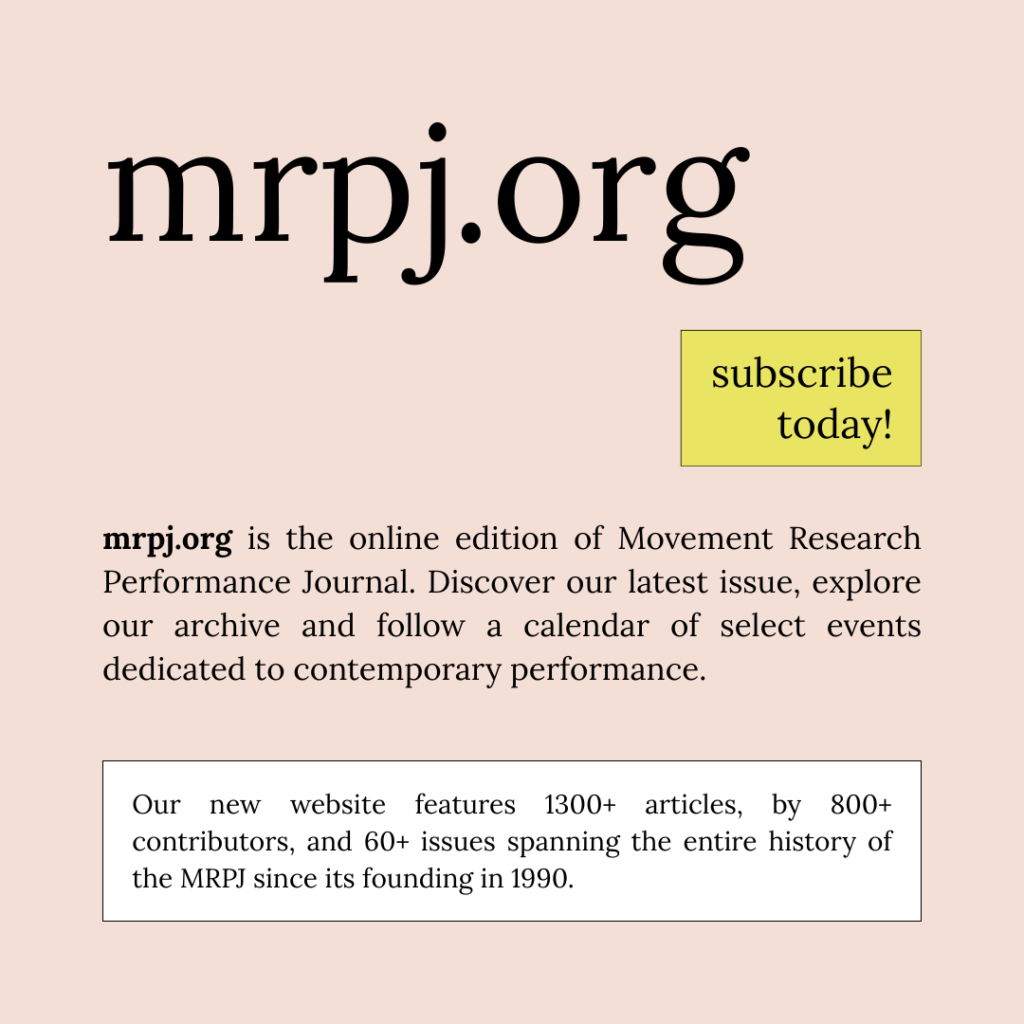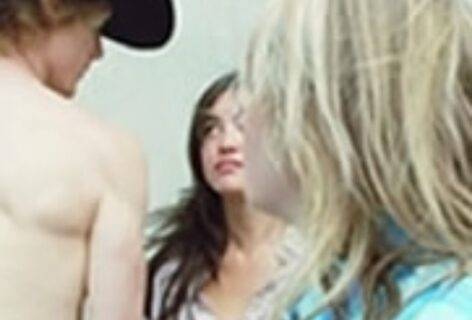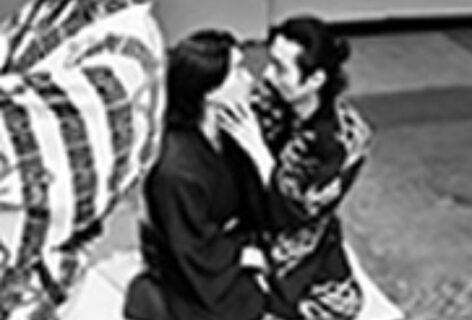by Clarinda Mac Low
A few weeks ago it dawned on me just how profoundly alienated I was from the government of the United States, the nation of which I am a citizen. This feeling has been with me for years, and hardly at the back of my mind, but at that moment it struck me with a visceral force. I felt the alienation in my body, a combination of nausea and claustrophobia, a sense of panic shading rapidly to numbness. I saw with absolute clarity that I agreed with almost none of the decisions being made by any branch of the Federal government. I felt physically as if I’d been bound and gagged, shouting myself hoarse but reaching nobody at all. My government putatively of the people and by the people had left my person behind.
In that state, a deceptively simple question occurred to me, and it has been tearing at me ever since: What does it mean to be a citizen?
If the work I’ve been seeing over the past few years, and, especially, in the past month or so, is any indication, I’m certainly not the only performing artists asking this question. Victoria Marks, in Not About Iraq, and Alex Escalante, in Clandestino, both performing at the Danspace Project at St. Mark’s Church in New York City, asked this same question from different angles, two weeks apart at the same venue. (Naturally, I’m not the only one who noticed this–Deborah Jowitt has written reviewing the two pieces in a recent Village Voice article). I don’t know if Laurie Uprichard, who curated both artists before her departure from the Danspace Project, knew the subject of the pieces, but if so, that would indicate that it is not only the artists who find this issue compelling.
Marks’ piece, whose title was modeled after Neil Greenberg’s Not About AIDS Dance from 1994, asked the question with the specter of the Iraq War in mind. This haunting causes a pervading sense of low level depression in many citizens, and Marks attempted, in the piece, to grapple with the contradictions that were inherent in our current ways of living.
Escalante’s piece dealt with the idea of citizenship in the context of immigrants and immigration, currently a hot-button issue in the US that is all tangled up with the paranoia, control, and blindness that characterize the mindset of both the populace and the government. Escalante’s piece was eclectic, intense and challenging, characterized overall by a rough and tumble generosity of spirit that left me tremendously moved in my political, emotional and physical selves. Escalante, a California-born child of immigrants from Mexico, utilized a grab-bag of theatrical devices, from an alteration of space (in collaboration with the excellent Joe Levasseur), direct questions from the dancers to the audience and each other, videos, photos, stories and interviews of his childhood and his family, and the inclusion of a live trio of Mexican Norteño musicians, as well as abstracted and actual social dances and other movement materials, to get his point across. The environment he and his collaborators created was an unusual combination of challenging, celebratory and elegiac, with seats in the round, an immigration check-point when entering the space and bright plastic flags strung up around white linen walls that acted as projection surfaces.
I was surprised by this work and its many tools because the work I had seen previously by Escalante had been the fairly minimalist Swallow Sand, which relied almost exclusively on an abstracted movement vocabulary. Intrigued, I spoke to him by phone about the piece and its process. When I asked him what led to the different approach, he answered that he wanted to achieve maximum clarity and the subject matter, so timely and also so personal, required a more direct and straightforward approach. It is interesting that he viewed this melding of disciplines and forms as “straightforward.” And it was. The piece was very communicative, as the synthesis of forms created a more complete and solidly meaningful experience than any one alone would have.
The current ease of many performing artists in adopting interdisciplinary composition is part of a larger discussion for another time, but Escalante’s piece shows some of the motivations behind it. On one hand, technology puts many tools at our fingertips that were more forbiddingly specialized in the past. Escalante, also an accomplished photographer, clearly is comfortable with all the software that allow us to manipulate images easily now. On the other hand, many artists feel an increasing pressure to speak out and challenge their governments and the structures that have taken hold in our late-capitalist world of lies. To do this effectively requires all the power available. Like Faustin Linyekula (see my earlier entry: Beginning the Investigation) and many others, Escalante has an urgent message in mind, but the conscious or unconscious sophistication to know that one art language won’t do it right now. To create a layered message that communicates on many levels, it all needs to be in there—dance, music, video, personal experience, text, face-to-face conversations with the audience, spatial challenges…
When we spoke, Escalante mentioned that he works with conflict resolution and the performing arts in New York City schools, and I felt that this showed in his ability to create a non-threatening yet challenging atmosphere. Towards the beginning of the piece he and the other performers asked the audience both serious and grin-inducing questions about ancestry and immigration. They were natural, friendly and inviting, but still willing to pursue reluctant participants and elicit revealing opinions. In thinking about performance as a communication device, it seems to me that our role is most effective right now in something approaching conflict resolution. Confrontation in art has run its course in many ways, now that shock and awe are the business of the everyday news feed and presidents of all stripes; connecting communities and challenging people to think clearly and listen to each other is the root of real evolution, and a good role for artists, whose stock in trade is creative communication.
Escalante said that he wanted to “show people the immigrant experience. You can go to a rally for immigration, and you’re in the thick of it, but it doesn’t really give you the real experience if you don’t know any immigrants personally.” Of course, because most of the population of the US is immigrant to some extent or another, this is more geared to the most recent immigrants, specifically those from Mexico and South and Central America who often enter illegally and at great risk.
What does it mean to be a citizen? Some of the answer to that question may be contained in the question—what does it mean to not be a citizen? This is a relevant question internationally, in our peripatetic, conflict-ridden world of refugees. In the United States it is a burning question right now, as our current “crack-down” on illegal immigrants cripples industries, tears families apart and alienates populations.
The three talented Norteño musicians, Los Inmigrantes del Sur, who participated in Escalante’s piece sang an eloquent song, Jaula de Oro, written by Los Tigres Del Norte, that sums up the alienation of both the citizen and non-citizen. While written specifically from the perspective of an illegal immigrant from Mexico;
Aqui estoy establecido, (Here’s where I’ve been living,)
en los Estados Unidos, (in the United States,)
diez años pasaron ya, (ten years have gone by,)
en que cruce de mojado, (since I came here as a wetback,)
papeles no he arreglado, (I have not fixed my papers,)
sigo siendo un ilegal, (I’m still an illegal)
the chorus:
De que me sirve el dinero, (What’s the money good for,)
si estoy como prisionero, (if I’m like a prisoner,)
dentro desta gran nacion, (within this great nation,)
cuando me acuerdo hasta lloro, (when I think about it I cry,)
aunque la jaula sea de oro, (because even if the cage is made of gold,)
no deja de ser prision. (it’s still a prison.)
speaks to all of us trapped in a failing system.
Thanks to Alex for taking the time to discuss his work.
Next week: Well, I don’t know myself…but accepting requests!





